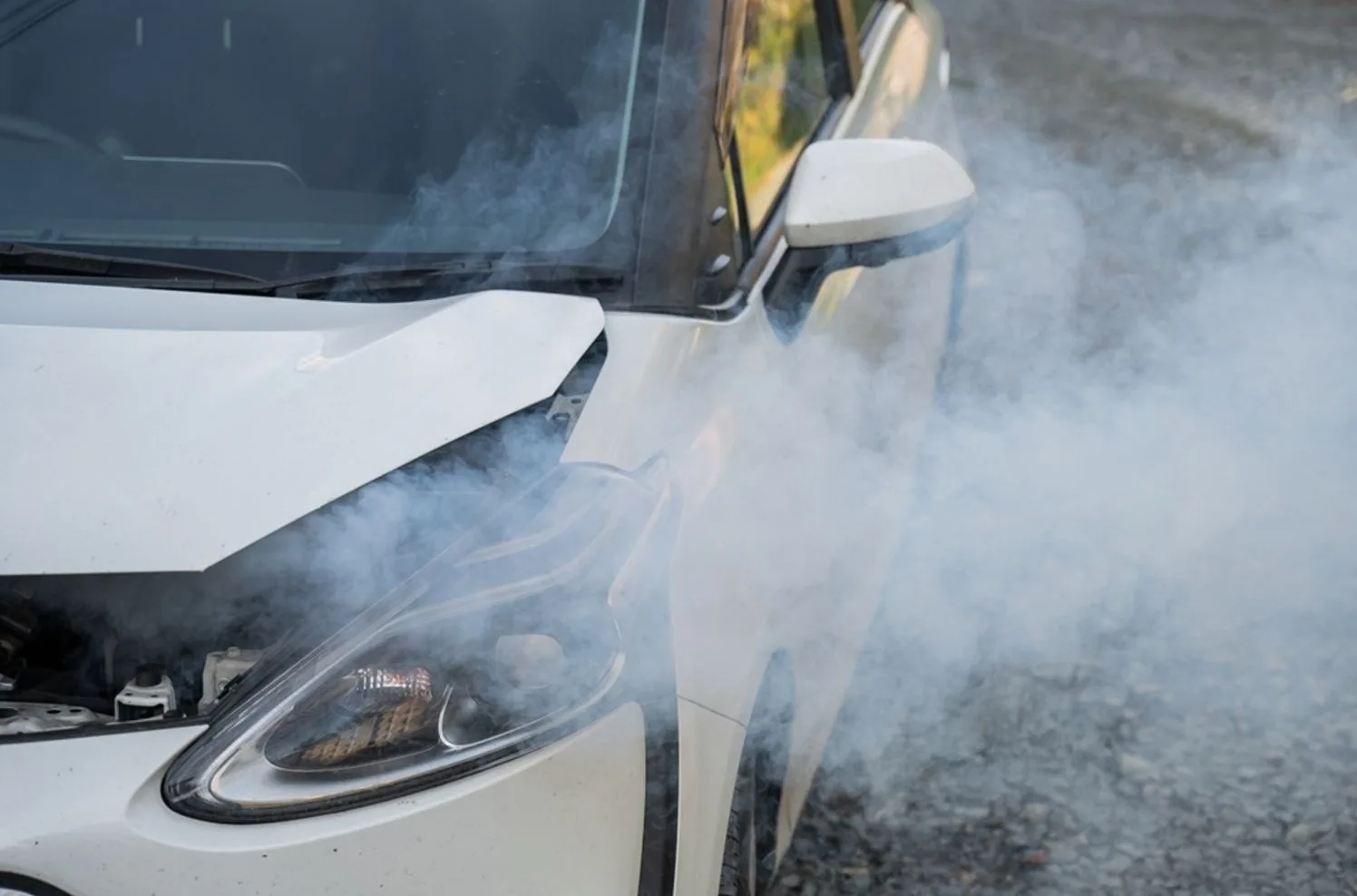A customer rang us up with that voice we’ve come to know well, concerned, a bit panicked, and unsure what just happened under the hood.
He was driving his Honda Pilot when it suddenly made a loud clattering noise. Not your typical engine hum, more like something plastic was being whacked around by a spinning fan. A few minutes later, the temperature gauge started creeping up. He caught a strong burning smell. Then, a bit of white mist started floating out from the bonnet.
He pulled over immediately and pulled out his phone. Searched for help. And there we were, the first result on Google. He called, and we picked up right away.
What We Told Him Before Anything Else
Don’t open the bonnet.
That was the first thing we said. When a car is overheating and something’s smoking under there, your instinct might be to pop the hood and take a look. But that can be dangerous, hot coolant, steam pressure, and plastic parts that might burst open.
We told him to leave the engine off, let the heat settle down on its own, and wait it out. Then we gave him our recovery truck number and had the vehicle brought straight to our workshop.
It was a good call. Driving it further might’ve led to more serious damage.
In the Workshop: Here’s What We Found
Once we had the Honda Pilot in, we started with the cooling system, the noise, the overheating, the smell, it all pointed in that direction.
It didn’t take long to spot the problem.
The radiator fan blade had come off its motor and was loose inside the shroud. Every time the fan spun, the blade smacked into the surrounding housing. That’s what caused the loud noise he heard, a flapping, hitting sound that got worse the longer it ran.
But that wasn’t all. The top tank of the radiator had a visible hairline crack. It wasn’t spraying coolant, but it was slowly leaking just enough to drop pressure and cause overheating.
Now, whether the fan blade struck the radiator directly or just threw off the balance, we can’t say for sure. But the connection is clear, that loose blade caused a chain reaction. Heat built up fast. The plastic tank couldn’t handle the stress. Crack formed. Coolant started leaking. And smoke followed soon after.
The Repair Process
We don’t believe in patch jobs when the damage is this clear. Here’s what we did:
- Replaced the entire radiator fan motor and the shroud assembly. Once something like that has come apart, you don’t reuse it. It’s a safety risk.
- Installed a new radiator. The old one had done its time, and a cracked plastic tank isn’t worth gambling on.
- Ran a full pressure test to make sure everything was sealed tight.
- Refilled the system with fresh coolant and got it running again under normal conditions.
No shortcuts. Just straight-up, proper repair work.
Final Checks: Road Test and Confirmation
We let the engine warm up, watched the temperature gauge, and waited for the fan to kick in.
Perfect timing.
No leaks. No weird noises. And no overheating. The fan operated smoothly, and the new radiator kept the temps steady during a full test drive.
We brought it back to the workshop for a final look, topped off the coolant, and gave the car a clean bill of health.
Customer’s Reaction
The owner was relieved, to say the least. He said he’d expected it to be something serious, maybe even engine damage. But because he stopped when he did, avoided opening the bonnet, and called us early, we caught it before it snowballed into something worse.
He thanked us for walking him through those first few steps on the phone, which probably saved him from a bigger repair.
What You Can Learn From This
Cars don’t always break down quietly. Sometimes they make weird noises first. Sometimes they start to smell hot. And sometimes, they give you just enough warning to avoid a bigger mess.
If you ever hear something odd, like a fan hitting something and your temperature gauge starts rising, do what this customer did.
- Pull over.
- Turn off the engine.
- Don’t open the bonnet while it’s hot.
- Call someone who knows what they’re doing.
And if you’re nearby? Contact us. We’ll figure out what’s going on, get you sorted, and get you back on the road with no guesswork.




